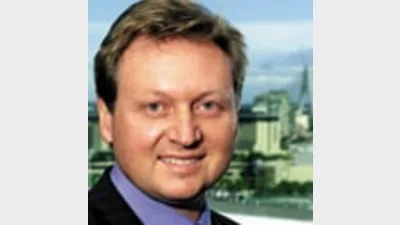SMSFs not to be taken lightly



Investors should have a good reason to start up a self-managed super fund (SMSF) and have a significant starting balance. Otherwise, they should be in an industry or retail fund, or a managed fund, according to several industry commentators.
The head of wealth management at HLB Mann Judd Sydney, Michael Hutton (pictured), said his firm generally looked at about $400,000 as a minimum starting balance.
There needed to be a weight of money or a weight of money flowing in to start an SMSF, along with a specific reason, such as a desire to hold a specific investment that would not be available in a large fund, Hutton said.
Clients with large balances who did not wish to be highly involved might be better off in a managed fund, although benefits included the extra flexibility around contributions caps for SMSFs with more than one member, he said.
Chant West principal Warren Chant has said in the past that the minimum starting balance for an SMSF should be $1 million, based on the fact that a chief reason to start an SMSF would be to hold a property – which often cost that amount or more.
Individuals should only start SMSFs if they wanted to own a property, enjoyed trading shares or had genuine estate planning reasons, he said.
Lots of people have set up SMSFs on the advice of accountants when they had quite small amounts, but even if they’re well managed there are no monthly return figures and very few trustees know how to calculate returns, Chant said.
Chant also questioned the advantages of having extra control because it meant either the trustee or their adviser had to do the asset allocation using data from research houses, whereas super funds had extensive resources, he said.
The Association of Superannuation Funds of Australia chief executive, Pauline Vamos, said the major issue with SMSFs was how returns were measured and whether they were gross or net.
“It’s very important that anyone who starts an SMSF understands what the net returns are and what it costs. There is not enough understanding of the costs, returns and risk,” she said.
SMSFs with balances under $500,000 were more expensive to run than industry or retail super funds, according to Cooper Review data, she added.
The Self-Managed Super Fund Professionals’ Association of Australia (SPAA) national technical director, Peter Burgess, said the issue of people starting SMSFs who shouldn’t was becoming less of an issue as balances trended upwards.
In 2004 the average SMSF balance was $247,000, but that is now closer to $500,000, he said.
“We would suggest the right people are being put into these funds and that’s been the case for a number of years now,” he said.
While the SPAA does not subscribe to a set minimum starting balance, Burgess acknowledged there were many flat-dollar costs involved that made SMSFs more cost effective as their balance grew.
Recommended for you
The winners have been announced for the 2025 Super Fund of the Year Awards, held in Melbourne on 26 November by Money Management's sister brand Super Review.
Data and technology provider Novigi has acquired Iress’ superannuation consulting and managed services business from Apex Group.
AMP is to launch a digital advice service to provide retirement advice to members of its AMP Super Fund, in partnership with Bravura Solutions.
Unveiling its performance for the calendar year 2024, AMP has noted a “careful” investment in bitcoin futures proved beneficial for its superannuation members.









